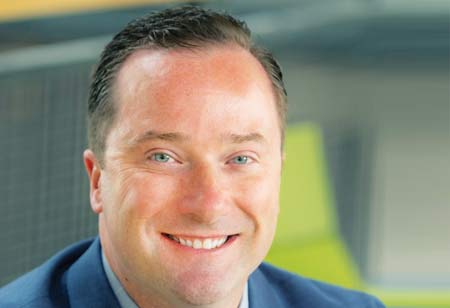Thank you for Subscribing to Healthcare Business Review Weekly Brief

Healthcare Innovation and the Challenges Ahead
Healthcare Business Review
Bio:
Rusty Parker has 19+ years of service in the healthcare industry, beginning his career as a licensed Physical Therapist. For the past 8 years, he has led the Supply Chain function for Methodist Le Bonheur Healthcare, a robust healthcare system supporting patients in East Arkansas, West Tennessee and North Mississippi. His deep clinical knowledge and innovative leadership has led to significant advancements in healthcare logistics, driving efficiency, cost savings, improved patient outcomes and innovation. A commitment to excellence and strategic vision has been instrumental in transforming supply chain operations to meet the ever-evolving demands of the healthcare landscape.
1. Can you share some insights into your professional journey and the key experiences that led you to your current role at Methodist Le Bonheur Healthcare?
My entry into healthcare was as a clinician. For 11 years I served our organization as a licensed Physical Therapist. Like most clinicians that enter healthcare, my story began with a personal impact that led me to pursue a profession in healthcare. While I enjoyed serving the patients and assisting them in recovery, during that tenure I was also looking for a new challenge. The request to leave the bed side and move to Supply Chain was a 180 degree turn but one that met that need to be challenged. That clinical background has proven tremendously valuable in my Supply Chain role. Having those reference points and experiences, allow for a different degree of engagement with the vendor partners as well as the provider partners.
2. What are the most significant trends and technology advancements that you believe will impact the Healthcare industry?
I believe that AI will be the most significant trend / advancement that will impact not only healthcare but all industries over the next few years. As many learn how to manipulate that technology, the advancement and risk will increase exponentially. It should be a priority for all industries to learn how to manage this advancement for the most benefit.
3. What do you see as the biggest challenges in the Healthcare landscape over the next decade and how are you preparing to address them?
The biggest challenges for Healthcare over the next decade will be Cybersecurity, Staffing and Supply Chain.
● Cybersecurity will continue to be a primary concern as more devices integrate with the healthcare’s network. Transparency and connectivity will be the gain, but the risk will be more frequent attacks. Increased awareness/education, improved security protocols and device management will be essential in managing the risk.
● Staffing will remain a priority as many specialties within healthcare are at risk (nursing, anesthesiologist, rad-techs, respiratory therapist and physician partners). Healthcare will have to embrace advancements in AI along with Telehealth to better position itself to respond to these challenges. Additionally, I believe more healthcare institutions will begin supporting their own health services education programs in an attempt to bend the staffing curve in the right direction.
● As many have pointed out, natural and man-initiated disasters will continue to create disruptions to the Global Supply Chain. Healthcare will have to be nimbler in responding to those disruptions. Efforts will include shifting purchasing channels to near shore locations, creating redundancies in the production process, better forecasting of raw material demands and embracing new methods of production that can reduce the time frame from development to mainstream use.
4. What advice would you give to other users looking to adopt emerging healthcare technologies and approaches? What are the key considerations and potential pitfalls they should be aware of?
As you evaluate emerging healthcare technologies and approaches, I believe that you must remain hyper focused on the requirements to implement these technologies. From cyber security to IT support, the lift continues to get heavier as the value gained continues to expand. Understanding how those advancements support the mission of delivering high quality patient care will also be an essential point of focus for healthcare institutions as they evaluate those emerging trends.









